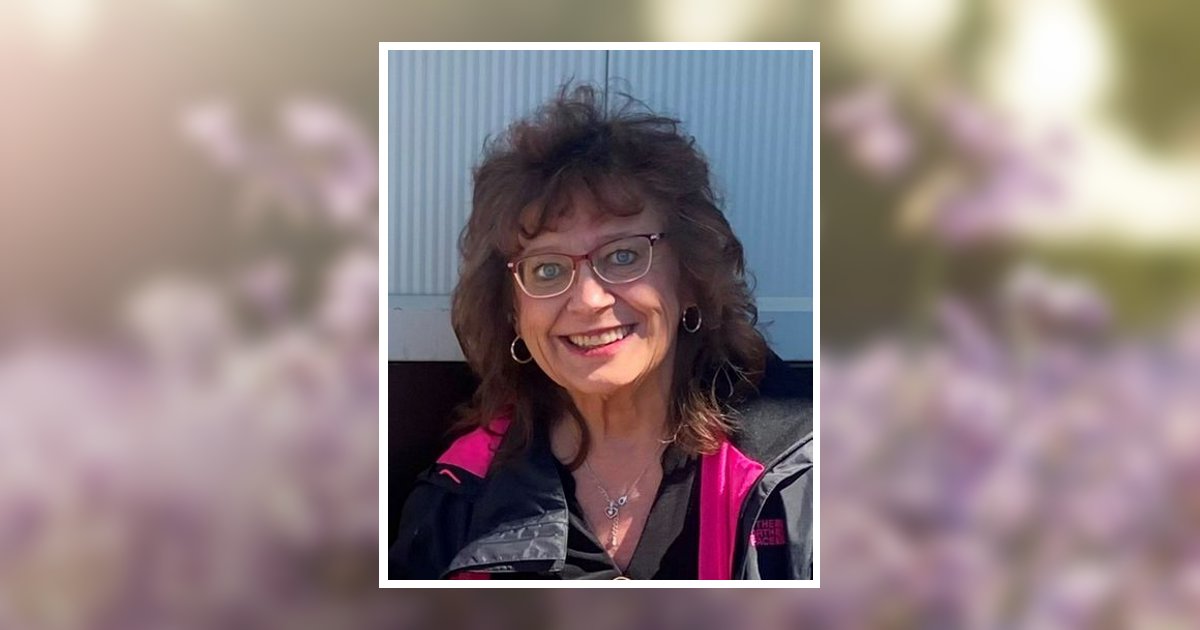North Dakota
Port: North Dakota law gives us options for ending this 'hot potato' game

MINOT — In a previous column, I likened the difficulty in finding a prosecutor to take up scandals left behind after the death of former Attorney General Wayne Stenehjem
to a game of hot potato.
One scandal involves businesses associated with a state lawmaker and close political ally of Stenehjem getting
a sweetheart lease deal.
The other involves Stenehjem’s former assistant
going rogue and ordering the deletion of public records
to keep them away from open records requests.
These potential crimes, happening as they did in the state capital, fall under the purview of Burleigh County, and elected State’s Attorney Julie Lawyer. But, as we learned during a lengthy and tense meeting of the Legislative Audit and Fiscal Review Committee Tuesday, Dec. 19.,
no prosecutor wants to take the case.
Current Attorney General Drew Wrigley, who took over for Stenehjem, and who was instrumental in bringing a great deal of this information to light, cannot lead an investigation into his own office. Wrigley called in an independent investigator from the state of Montana to help establish facts, but that investigator was frustrated by an inability to get subpoenas to facilitate access to information and witnesses, something that wouldn’t have been a problem had a local prosecutor been working on the case.
To say that Lawyer’s office is uninterested in pursuing this is an understatement. Her office now employs Liz Brocker, the assistant who ordered the destruction of public records, and who is a subject of the investigation. Not only does that present a massive conflict of interest for that office, but it’s a tacit admission of Lawyer’s own biases in the case.
It’s hard to believe she sees this as a serious situation when she hired one of the people at the center of the controversies.
Perhaps this attitude explains her foot-dragging in assigning this matter to a prosecutor who will handle it. This is Lawyer’s jurisdiction. She’s responsible for these cases. If her office is compromised — and it is by Brocker’s hire — then she must ask for outside assistance.
It’s been more than 530 days since these scandals broke, and that’s not happening. It may be time to make it happen.
State law gives us some options, one more extreme than the other, but both are worth considering if this inaction continues.
Section 11-16-08
of the North Dakota Century Code gives the Burleigh County Commission the authority to appoint a special counsel to assist in “cases of public importance.” This appointment must be with the “advice and consent” of the state’s attorney, meaning that Lawyer must sign off on it. But the county commission could force the issue. They could offer to appoint a special counsel and, at the very least, make Lawyer, if she isn’t going to accept one, explain publicly why not.
Then there’s the nuclear option.
Section 11-16-06
allows a judge to appoint someone to step in if the “state’s attorney has refused or neglected to perform” their duties. The judge can request that the Attorney General appoint someone (not really an option in this situation) or appoint “an attorney to take charge.” The law even gives the judge the option of deducting the cost of that attorney from the state’s attorney’s salary.
That would be a drastic step, I know, but something has to happen. Whether these scandals rise to criminal wrongdoing or not, they have dealt a body blow to the public’s trust in North Dakota government. The public must be satisfied that there has been a thorough investigation, and rigorous consideration of potential criminal charges. We need someone to lead this effort and either bring charges or explain, in detail, why charges aren’t possible.
The public is owed this. It’s time for our public servants to deliver.

North Dakota
North Dakota House passes bill to shorten time for educators to attain lifetime licensure

BISMARCK — A bill that would reduce the time it takes for a North Dakota teacher to earn a lifetime educator license passed through the House by a substantial margin Friday, Jan. 24.
Representatives voted 79-12 to advance
House Bill 1238,
sponsored in part by Rep. Zachary Ista, D-Grand Forks.
The House Education Committee unanimously recommended the bill for passage Thursday, though the bill received mixed reviews among education circles during a hearing Tuesday.
The bill would make a teacher eligible for a lifetime license when reaching 20 years in their career, instead of the current 30-year mark.
Anyone with a lifetime license who intends to keep teaching shall report to the state’s licensing agency, the Education Standards and Practices Board, at least once every five years, the bill states.
Reporting could include any crime a teacher committed or other behavior that could lead to license revocation or suspension.
Nothing in the bill would prevent the board from taking its own action against a teacher’s lifetime license, if warranted.
The bill is a holdover from the last legislative session, Ista said, during which it received widespread support in the House but failed on a tie vote in the Senate, with one member absent.
One thing that is different this time is the reporting element, he said, which was a sticking point last time with ESPB.
Much of the support for HB 1238 comes in the name of improving recruitment and retention of teachers.
Ista said the bill would reduce continuing education expenses for teachers, estimating the average educator could save up to $1,000 in out-of-pocket expenses.
Contributed / Zac Ista
Also testifying in support Tuesday was Nick Archuleta, president of North Dakota United, the union representing public education and public services employees in the state.
Archuleta said some opponents maintain the bill would cause teachers to stop taking educational credits they might otherwise have earned.
“Not only is that argument a slight to the professionalism of teachers, it also discounts entirely the fact that teachers … have to take coursework to make lane changes and advance on the salary schedule,” he said.
Testifying in opposition of House Bill 1238 were representatives from the state Education Standards and Practices Board.
Executive Director Rebecca Pitkin said most states require continuing education for license renewal.
“Teachers are the model of lifelong learning. Ongoing education, potentially until almost the end of a career, is critical,” she said.
Pitkin also said reducing ongoing education requirements for teachers would not promote the profession.
Cory Steiner, ESPB chair and superintendent of the Northern Cass School District, agreed.
“There could be unintended consequences, seeing education as ‘less than’ other fields, where it should be equal to or more than,” he said.
Pitkin said there are currently around 18,000 licensed educators in the state system, with around 10,000 of them currently working.
Providing neutral testimony was Ann Ellefson, director of academic support at the North Dakota Department of Public Instruction.
Ellefson said the state’s teachers have easy access to an online educational hub offering professional development, training opportunities and educator resources.
Many of the courses are no cost or low cost across all North Dakota zip codes, she said, while some do charge a nominal $40 fee at registration.
There are 557 active users taking part in 68 courses that include child nutrition, North Dakota Native American studies, science of reading, mathematics and educator ethics, Ellefson said.
On the House floor Friday, Rep. LaurieBeth Hager, a Fargo Democrat and cosponsor of the bill, said the legislation would reduce red tape for teachers.
Rep. Pat Heinert, R-Bismarck, said Friday the goal of the bill is to keep teachers in the profession.
Further action on the bill was not scheduled as of Friday.
North Dakota
Sandra White Obituary January 24, 2025 – Weigel Funeral and Cremation Service

Our cherished Sandy White of Bowman, ND, left her worldly family on January 24, 2025, at Trinity Hospital in Minot, ND, with her children by her side.
A Funeral Service will be held at 12:30 PM on Wednesday, January 29, 2025 at Weigel Funeral Home, Mandan, ND. Burial will be at the North Dakota Veterans Cemetery.
Visitation will be held Wednesday, January 29, 2025, from 11:30 AM-12:30 PM at Weigel Funeral Home, Mandan.
Sandy was born on September 10, 1957, to William G. and Eleanor (Wetzel) Jones in the Mandan Hospital. Several years later, her sister, Linda, arrived to complete the family. Sandy spent her early years on the farmstead of William (great-great grandpa Jones) on land he settled west of Glen Ullin, ND, which he acquired before statehood. Sandy had a special relationship with her grandpa, Thomas Jones. Upon graduation from Glen Ullin High School in 1975, she went to nursing college in Bismarck. She began her career of taking care of others as a nurse at St. Joes in Dickinson. Perhaps by fate, she was drawn to a job in Bowman, ND, where she met her future husband, Paul. Sandy and Paul worked together for 45 years, balancing raising a family, Sandy’s nursing career, as well as, running the family farm. Sandy dedicated much of her life to caring for others, first as Director of Nursing at the Southwest Healthcare Services Nursing Home in Bowman, and later as Director of Nursing for Western Horizon Care Center in Hettinger, ND. In her career, her leadership and kindness touched many lives, and she will be remembered fondly by the many patients and colleagues she served over the years.
Sandy never let her personal health issues affect being the best wife, mom, and grandma that anyone could ask for. Sandy embodied the gifts of honesty, sincerity, humility and love. She brought a smile to all she met and brought light into the lives of all she knew.
Sandy will be missed by her loving husband of 45 years, Paul; son, Jamie (Yuki) White and their children, Melanie and Marisa; daughter, Kayla (Steve) Bourgois and their children, Thomas and Harrison; a sister, cousins, in-laws, and nieces and nephews.
Sandy was preceded in death by her parents, grandparents, aunts, uncles, mother and father in-law, special cousin, Curtis Sayler, and brother-in-law, Perry Horner.
In lieu of flowers please consider making a donation to the Bowman Nursing Home in Sandy’s memory.
North Dakota
North Dakota Senate votes down change to primary election ballots

BISMARCK — North Dakota will see no changes to primary election voting procedures for now, after the Senate on Friday voted against a bill that would have changed primary ballots.
North Dakota’s current primary ballots feature both Republican and Democrat primary races on the same ballot, but voters are only allowed to vote in one party’s primary election. If they vote in both, the ballot is spoiled.
Under
Senate Bill 2178,
North Dakotans would have needed to request a primary ballot from a specific political party. The ballot they received would only have had the primary races of that political party on it. The bill also proposed to keep track of which primary ballots voters requested, allowing political parties and candidates to better target their messaging to people who were likely to vote in their primary.
There were concerns raised in committee over the privacy issues this would create for voters by requiring them to ask for specific party ballots in front of friends and neighbors in their polling place.
The bill received a do-not-pass recommendation out of committee with a 6-0 vote.
Sen. Chuck Walen, R-New Town, said on the floor of the Senate Friday that the Senate State and Local Government Committee gave the bill a do-not-pass recommendation after testimony convinced members it would create an “undue burden” on polling places and could lead to more confusion with voters.
Grant Coursey / The Bismarck Tribune
Walen was the primary sponsor of the bill, and accounted for one of the four votes in favor of it.
The bill was voted down in the Senate 42-4 with one legislator absent or abstaining.
-
/cdn.vox-cdn.com/uploads/chorus_asset/file/25835602/Switch_DonkeyKongCountryReturnsHD_scrn_19.png)
/cdn.vox-cdn.com/uploads/chorus_asset/file/25835602/Switch_DonkeyKongCountryReturnsHD_scrn_19.png) Technology1 week ago
Technology1 week agoNintendo omits original Donkey Kong Country Returns team from the remaster’s credits
-

 Culture1 week ago
Culture1 week agoAmerican men can’t win Olympic cross-country skiing medals — or can they?
-

 Culture7 days ago
Culture7 days agoBook Review: ‘Somewhere Toward Freedom,’ by Bennett Parten
-

 World1 week ago
World1 week agoChrystia Freeland, Justin Trudeau’s ‘Minister of Everything,’ Enters Race to Replace Him
-

 Education1 week ago
Education1 week agoReport Projecting Drop in Freshman Enrollment Delivered Incorrect Findings
-

 News1 week ago
News1 week agoCNN liable for defamation over story on Afghanistan 'black market' rescues
-

 World1 week ago
World1 week ago‘Fields were solitary’: Migration raids send chill across rural California
-

 World1 week ago
World1 week agoCommission claims slashing of foreign offices still under negotiation

















